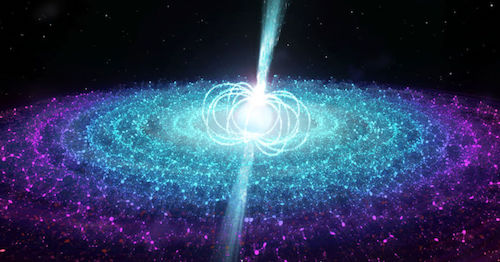
Astronomers Record Signal Coming From Deep Space Every 157 Days
Scientists can't explain these mysterious signals from space — but they're trying.
A team of astronomers have discovered a new “fast radio burst” (FRB) signal, Space.com reports — mysterious flashes of millisecond-wave energy, coming from distance space, that repeat every 157 days.
The signal, dubbed FRB 121102, flares up for a 90 day period and then goes silent for another 67 days, as detailed in a paper about the discovery published Sunday in the journal Monthly Notices of the Royal Astronomical Society.
Since 2007, astronomers have been trying to figure out the origin of these mysterious pulses. So far, we’ve discovered more than 100 of them.
About a month ago, scientists
This latest repeater is not the first cyclical FRB observed. Back in January, Cornell University researchers announced they had identified an FRB source about half a billion light years from Earth that pulses on a 16-day cycle.
So far, the best explanation we have for these repeating pulses is that they are put out by magnetars, supercharged neutron stars, wobbling around their own axis, movement referred to as “precession.” Others suggest the patterns could be caused by a neutron star orbiting a second star as part of a binary system.
“This is an exciting result as it is only the second system where we believe we see this modulation in burst activity,” Kaustubh Rajwade, lead author and postdoctoral researcher at The University of Manchester, said in a statement.
According to Rajwade, the discovery “could argue against a precessing neutron star,” as the cycle, at 157 days, is far longer than the first repeater of 16 days.
But FRBs will remain a mystery. “This exciting discovery highlights how little we know about the origin of FRBs,” Duncan Lorimer, associate dean for research at West Virginia University and co-author of the study, said in the statement.
© Author: Victor Tangermann
